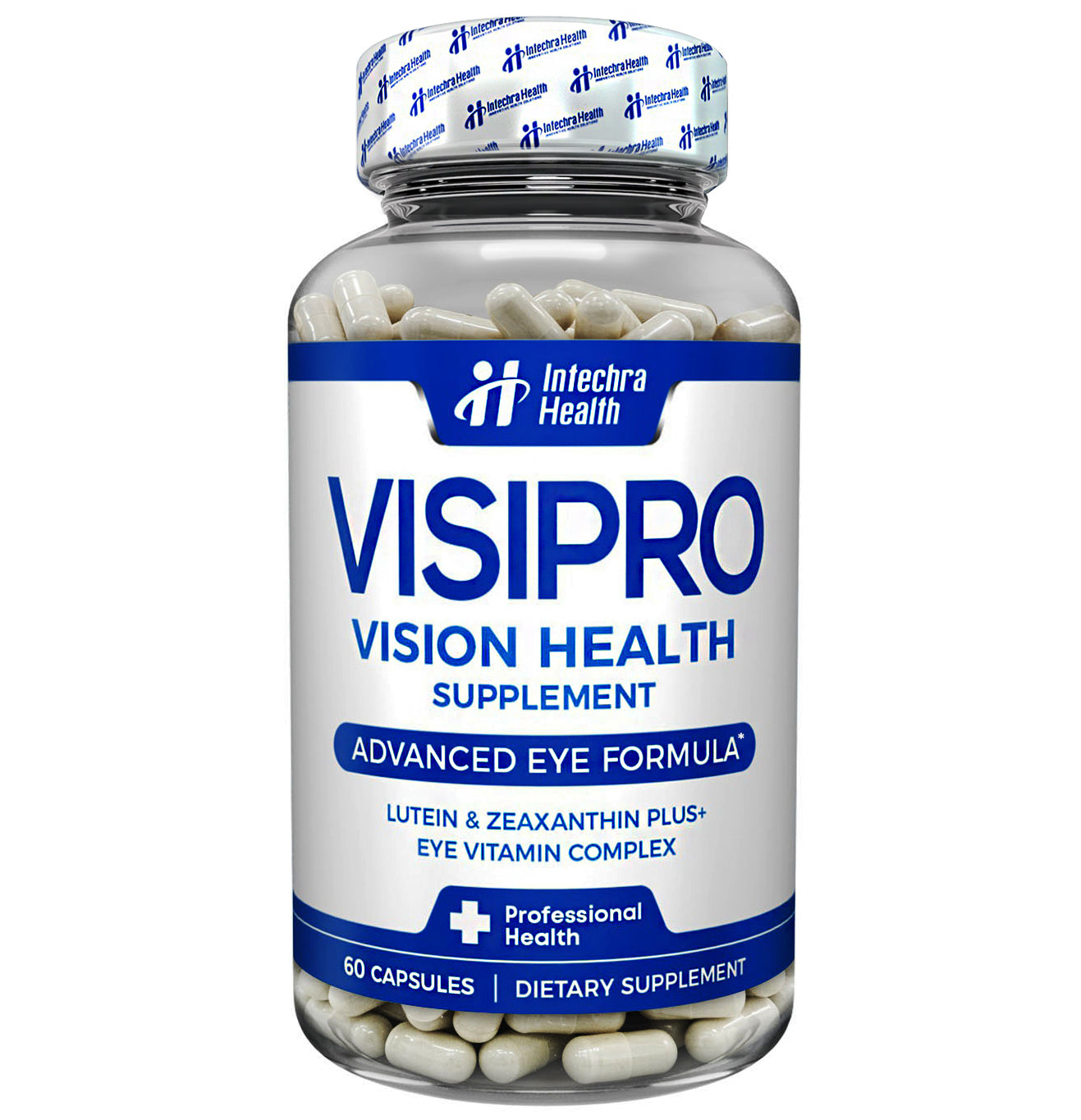
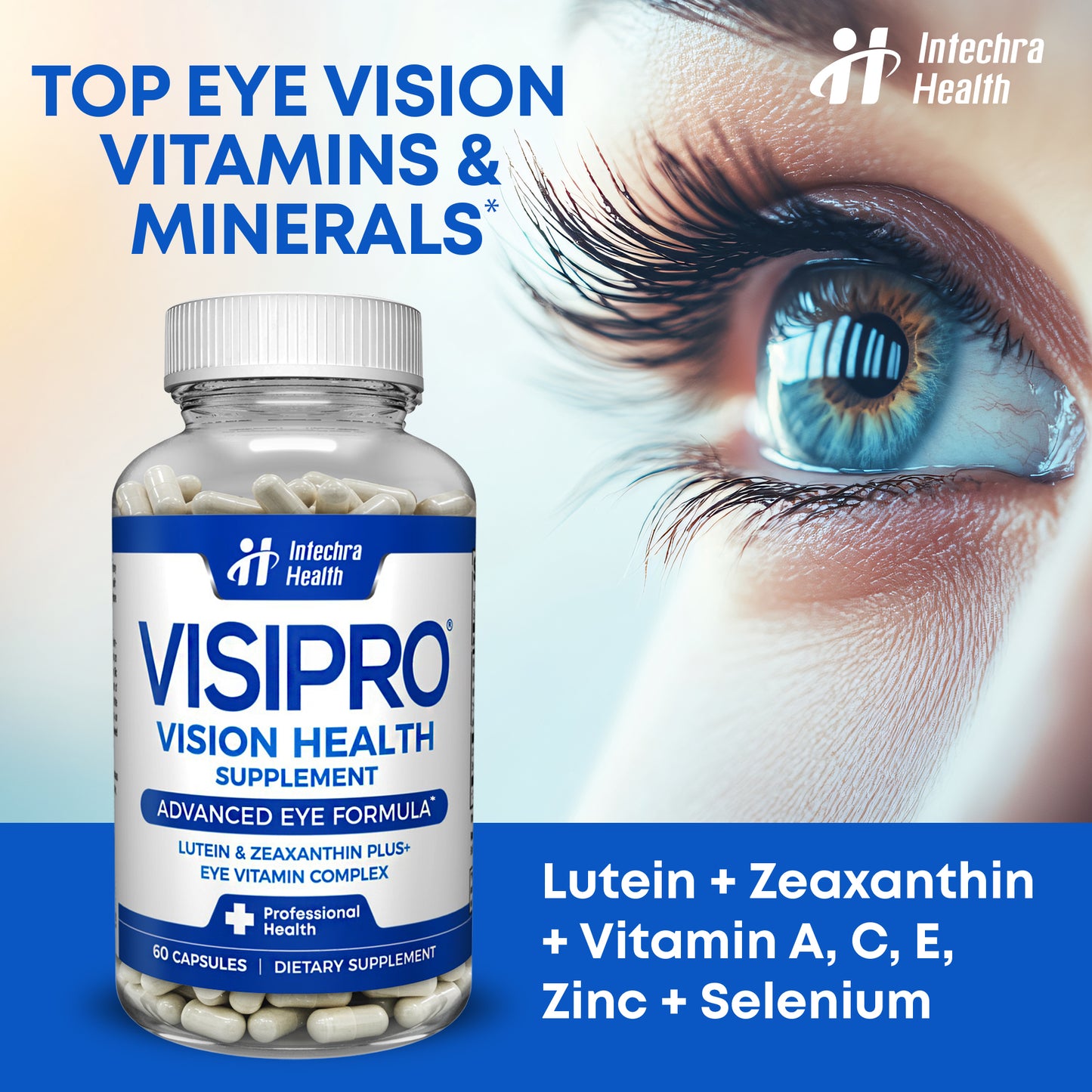
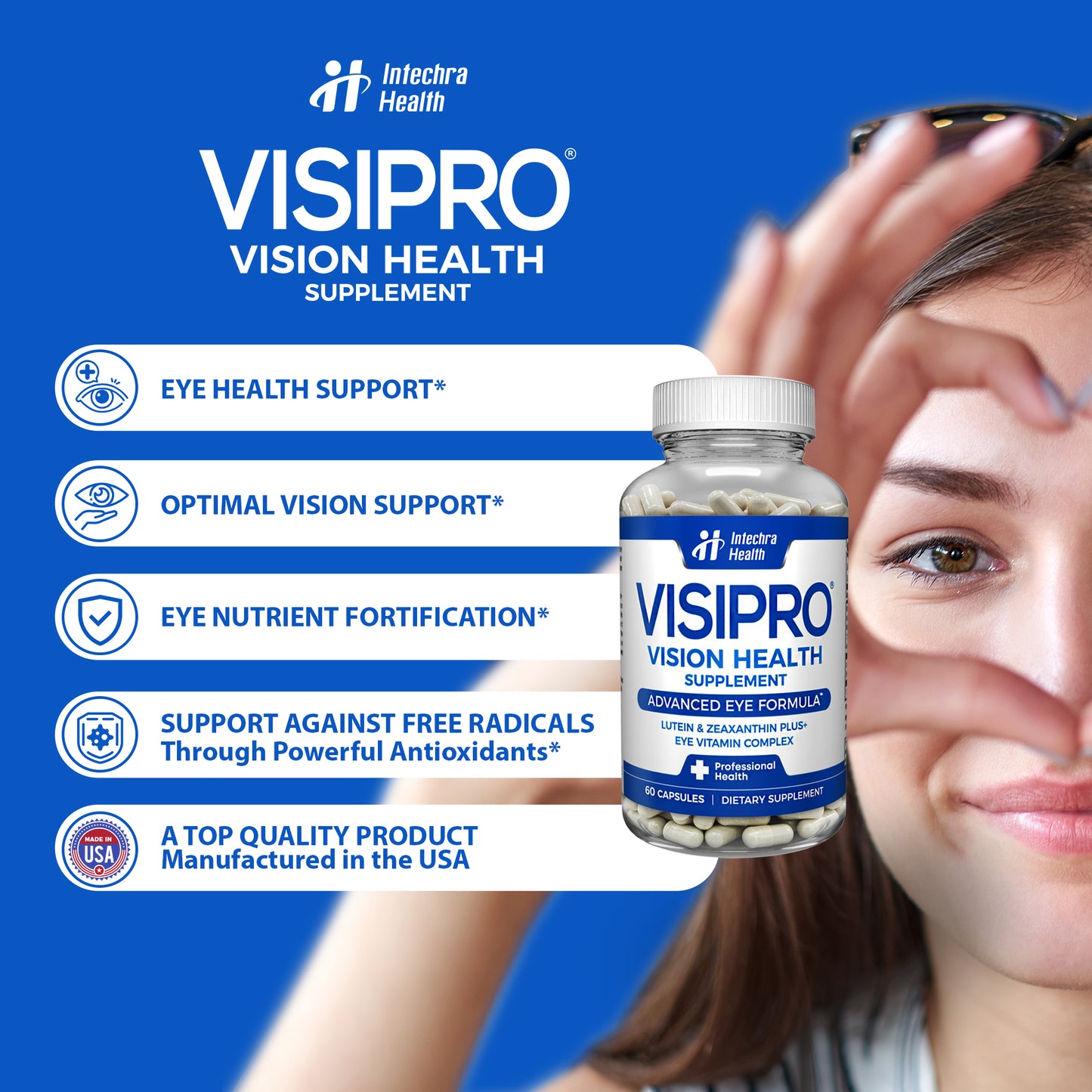
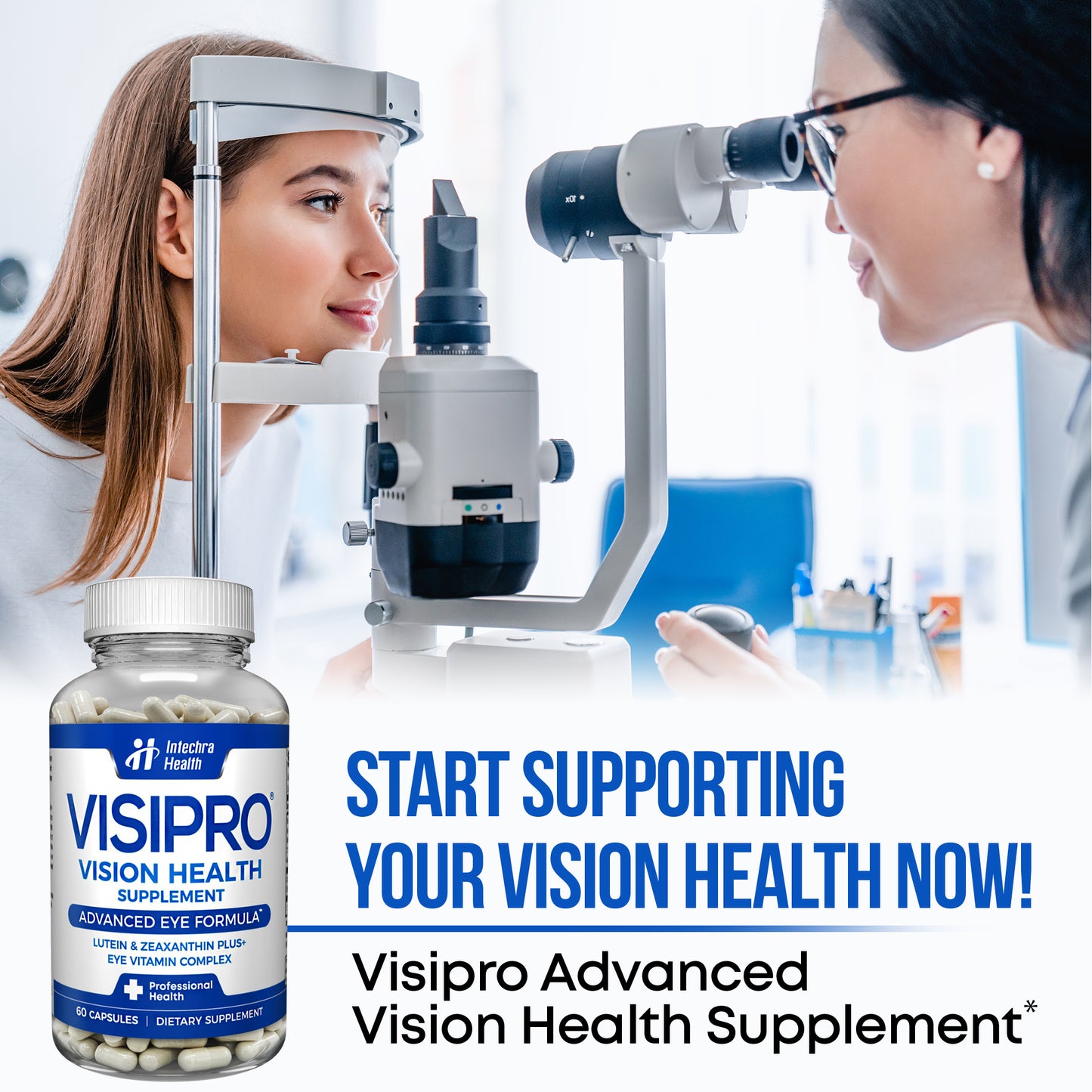
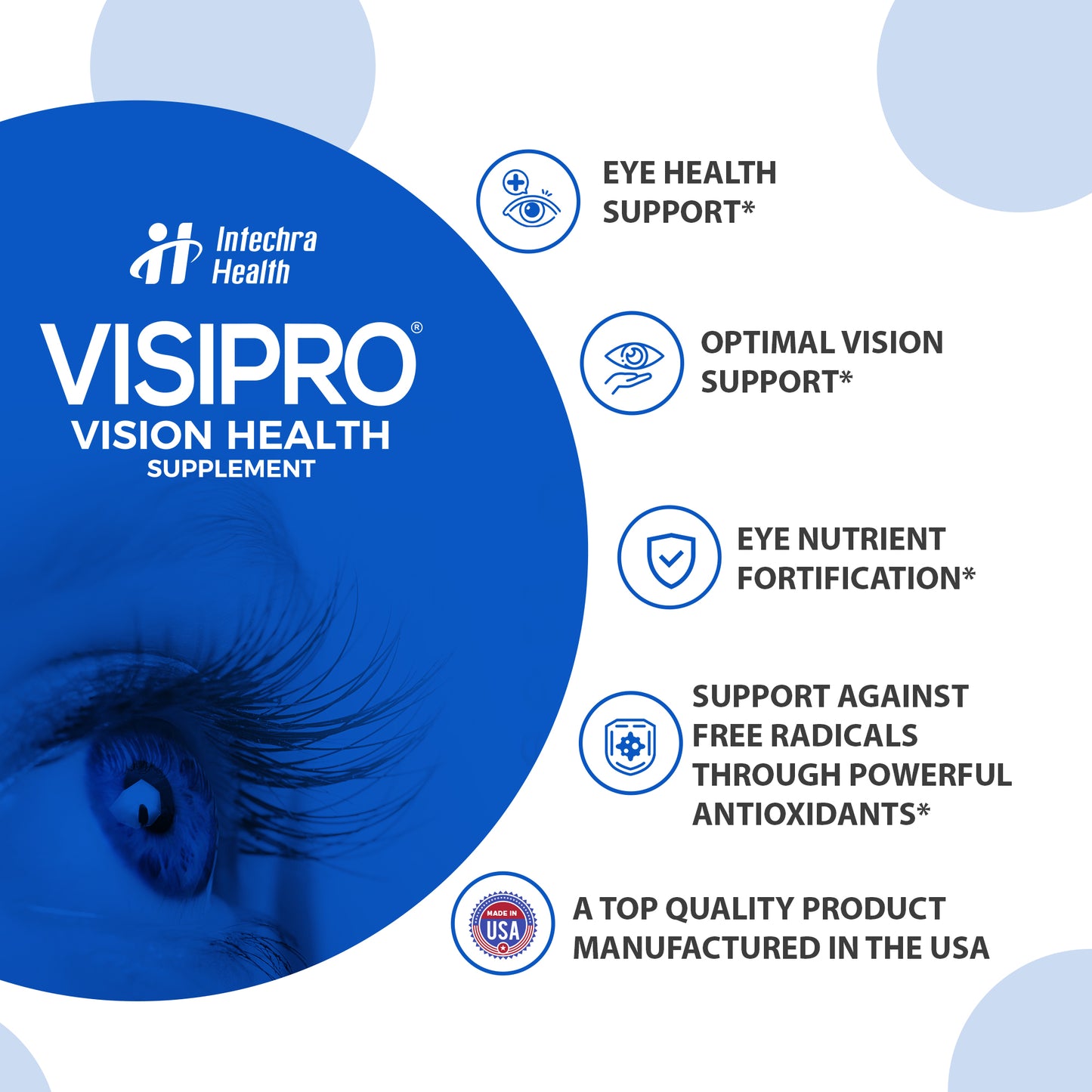
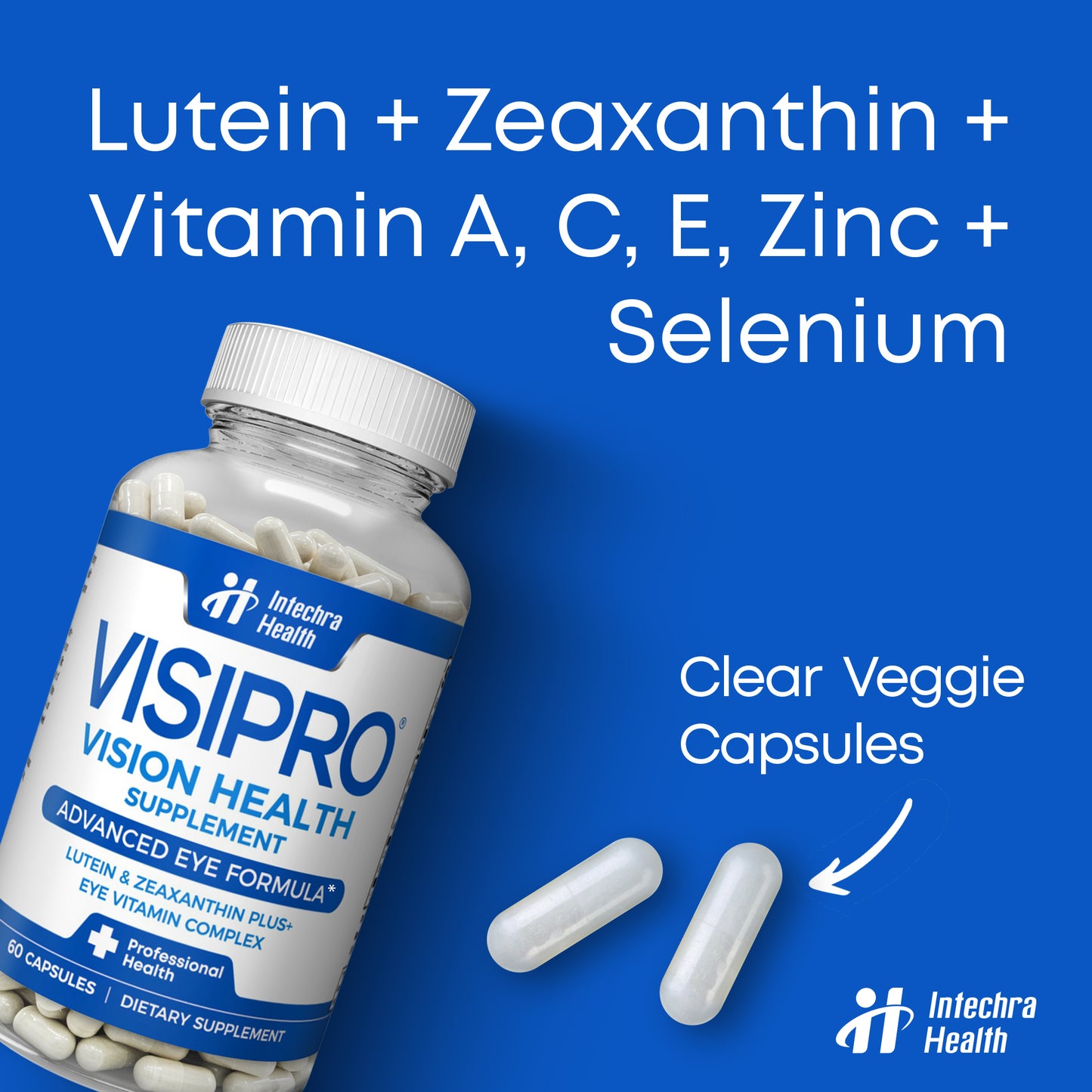
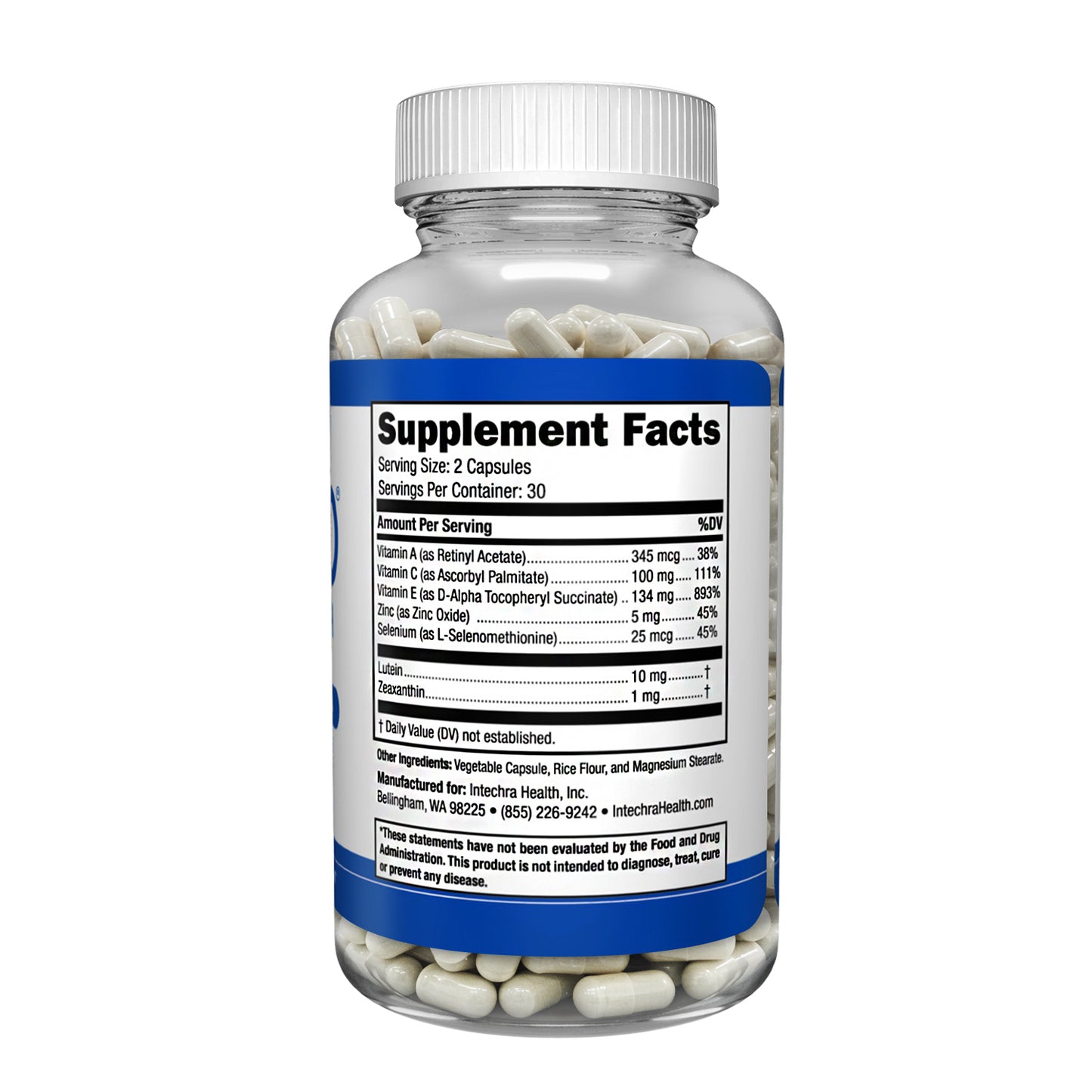
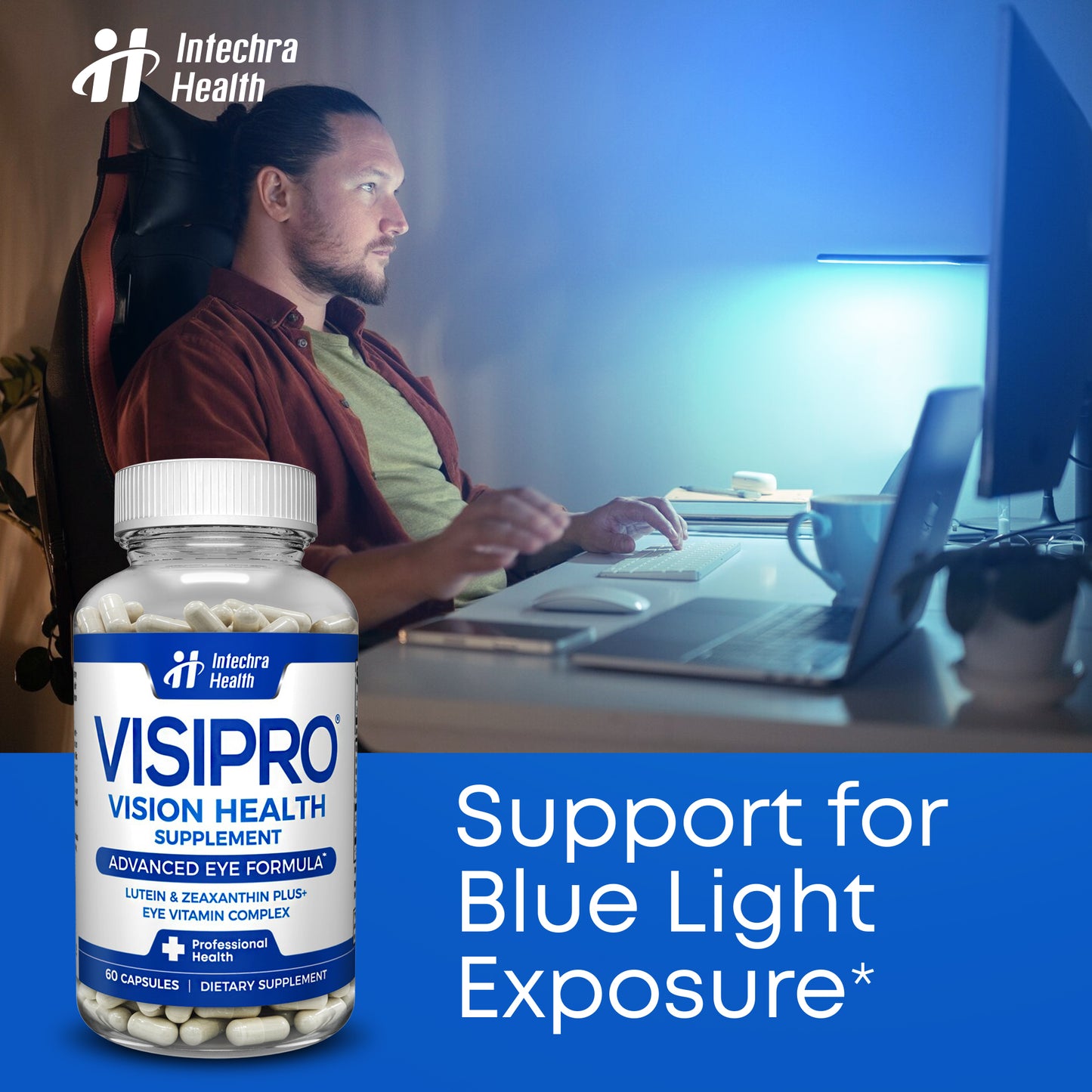
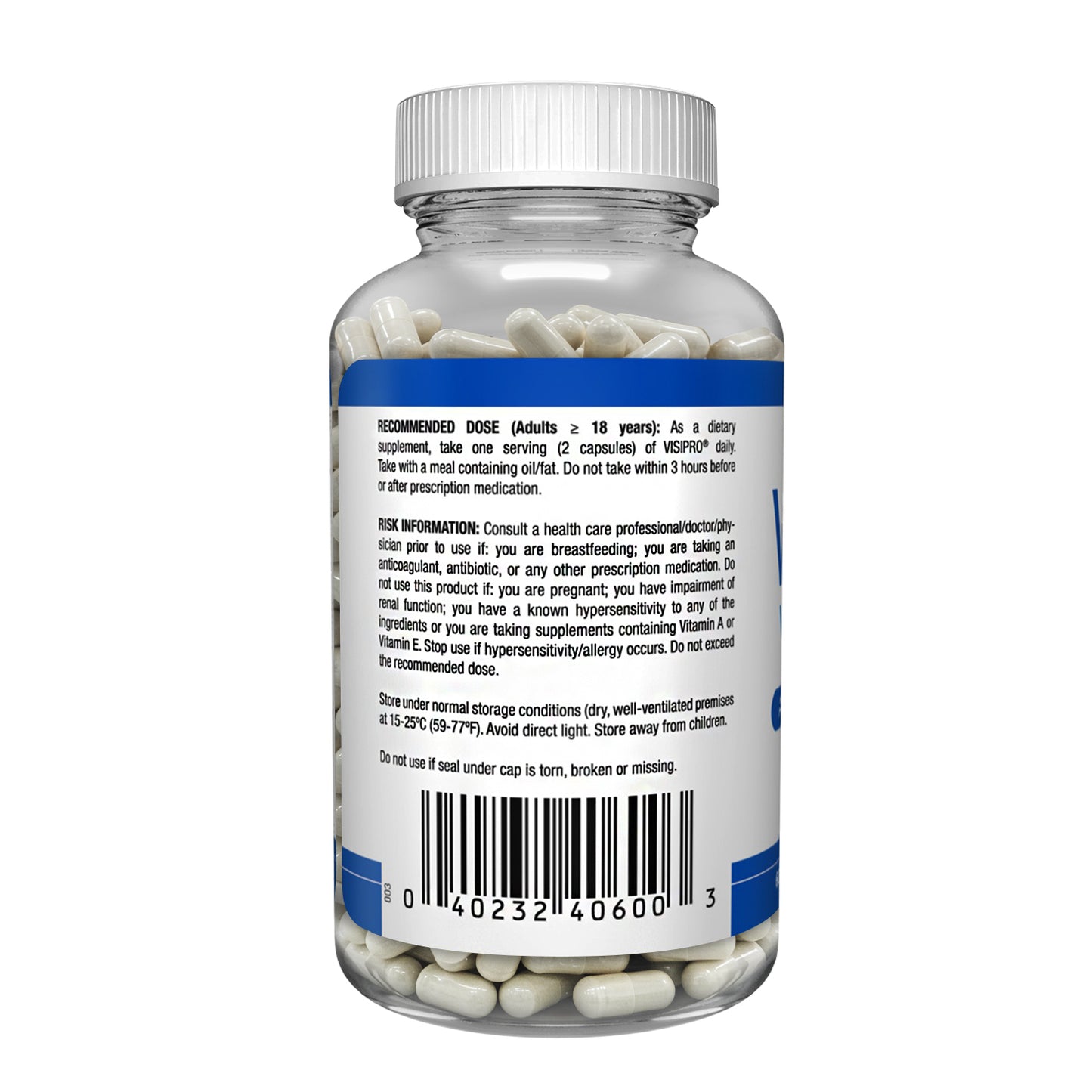
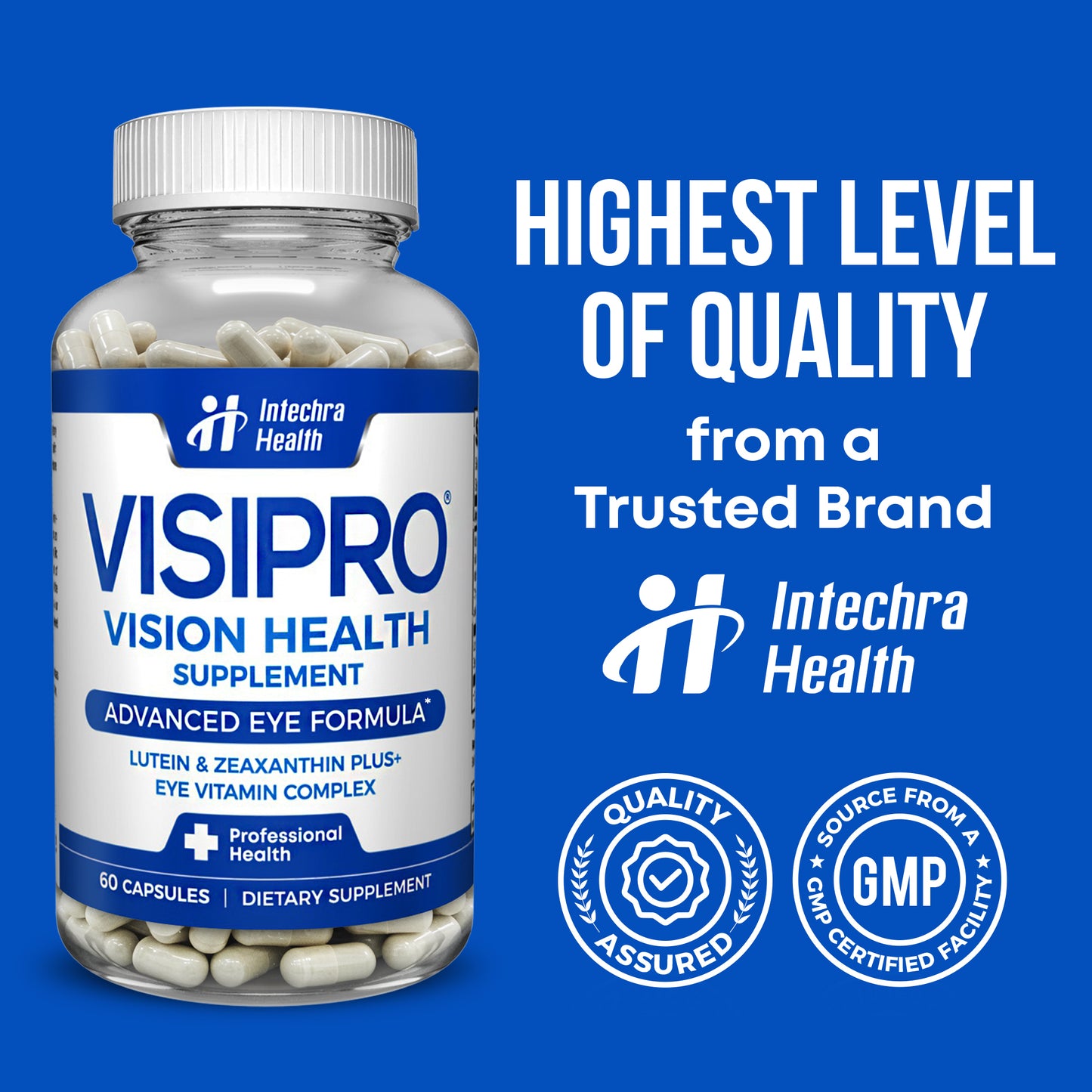
Detailed Product Guide & User Reviews
VISIPRO® veggie capsules are manufactured in the United States and are comprised of a proprietary formula that includes some of the best-known eye health support ingredients. Every one of those ingredients – including Lutein and Zeaxanthin – has been carefully selected. For these reasons you can have confidence in your decision to make VISIPRO a vital part of your overall approach to eye care and health.
VISIPRO advanced support vision supplements are formulated to perfectly complement a healthful diet. In this way, you can know that you’re not accidentally leaving out nutrients that are critical to your long-term ocular wellness. After all, while there are many factors that can influence the health of your eyes – from age to genetics and even the environment, lifestyle and nutrition can be your top line of defense for your eyes and your vision.

VISIPRO® BENEFITS MAY INCLUDE:
- OVERALL EYE HEALTH SUPPORT* – With the nutrient fortification provided through this complete formula, you can know that your ocular health is receiving powerful support. This ensures the top possible wellness and function of these delicate, but highly important organs. After all, it’s nearly impossible to make sure you’ve received a perfect balance of nutrition for your eyes in your meals and snacks every day. A little bit of additional high quality nutritional help can go a long way.
- DEFENSE AGAINST MACULAR DEGENERATION* – Age and many other issues over which we have no control can lead to macular degeneration. This can cause your vision to gradually decline and may eventually lead to blindness. The ingredients within this formula can help to safeguard your eyes from the onset of this condition and can help to bolster them against decline if it is already present. In fact, your optometrist may already have recommended that you take certain supplements such as lutein and zeaxanthin in order to protect your eyes from this very common degenerative condition.
- PROTECTION FROM CATARACTS* – Another ocular condition commonly associated with age (though it can occur in younger people as well) is cataracts. Advanced cases can look like a milky white film in the eye. They can considerably reduce your vision and can lead to blindness. Some cases are operable, but prevention is preferable. Some of the ingredients within this formula are believed to build the eye’s protection against cataracts.
- POWERFUL ANTIOXIDANTS* – These are vitally important to the body’s own natural defenses against free radicals. Free radicals place the body under oxidative stress and can cause damage at a cellular level, including in the eyes. Antioxidants help to counteract that damage or stop it before it happens. In fact, this benefit can be helpful to many organs of the body.
- NIGHT VISION SUPPORT* – Some of the ingredients within this formula, when used in the proper moderate doses, can help to protect against the onset of night blindness. That condition occurs when the eye becomes less capable of seeing when the lighting is dim. It can be especially problematic for people who need to drive when it’s dark out.
POWERFUL & NATURAL EYE HEALTH AND VISION SUPPORT – VISIPRO 20-20*

What is VISIPRO®?
VISIPRO is dietary supplement. It is sold as easy-to-swallow veggie capsules. The ingredients in VISIPRO are: Vitamin A (as retinyl acetate), Vitamin C (as ascorbyl palmitate), Vitamin E (as dl-alpha-tocopheryl succinate), Zinc (as zinc oxide), Selenium (as L-Selenomethionine), Lutein and Zeaxanthin.
How to Take VISIPRO®?
As a dietary supplement, take two (2) capsules of VISIPRO once a day, preferably in the morning, with a glass of water and food. Do not take within 3 hours before or after prescription medication.
What should I know before taking VISIPRO®?
This product is not intended for children under the age of 18. Consult your healthcare provider (e.g., doctor or pharmacist) before using this product if you are pregnant or nursing, or trying to become pregnant, or taking an anticoagulant, antibiotic or any other
prescription medication. Do not use this product if you have impairment of renal function, have a known hypersensitivity to any of the ingredients or are taking supplements containing Vitamin A or Vitamin E. Discontinue use and consult a healthcare provider if you experience adverse reactions such as anaphylaxis, diarrhea, nausea, vomiting or abdominal pain. Do not exceed the recommended dose.
What are the potential side effects from taking VISIPRO®?
When taken as directed, there should not be any side effects. However, there is always the possibility of an allergic reaction to one of the ingredients. If you have any unusual symptoms when taking this product, discontinue its use right away. If symptoms are severe, please seek medical attention.











